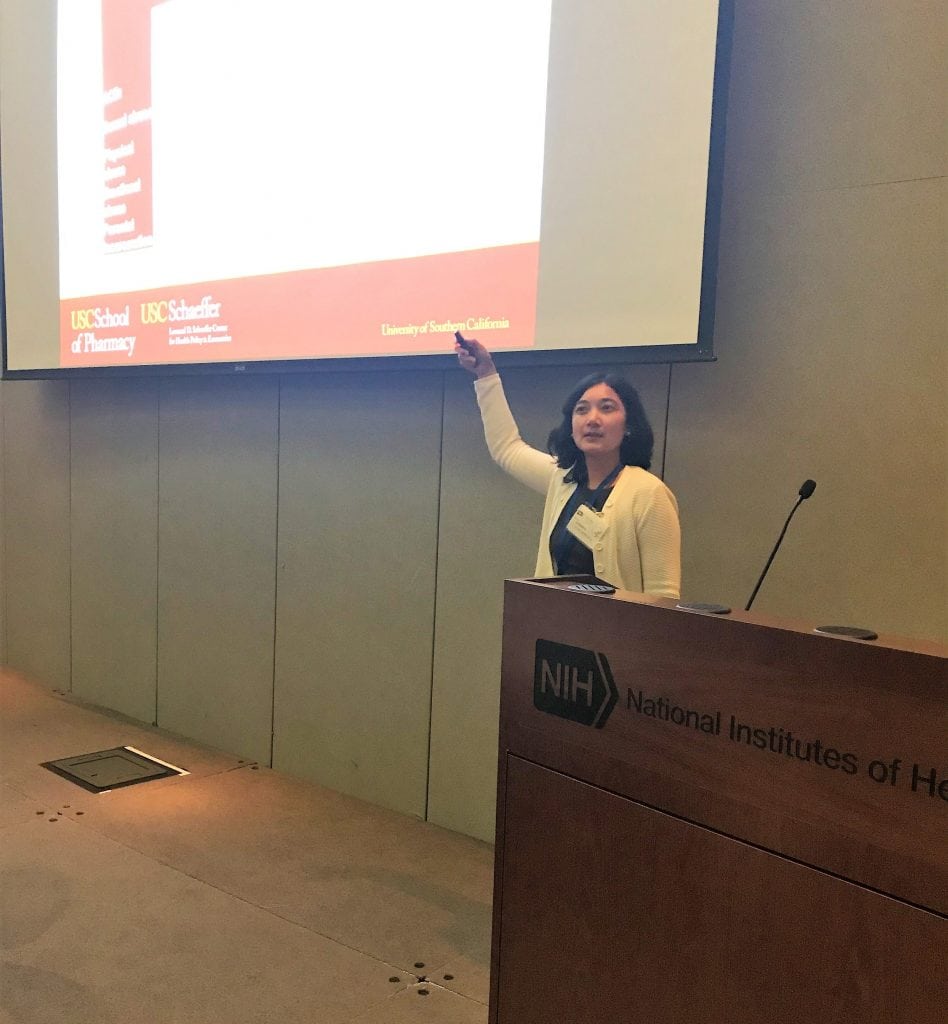Laura Henkhaus, PhD candidate in health economics at USC Mann, presented “Childhood Sexual Abuse and Adult Human Capital” during the Add Health Users Conference on the campus of National Institutes of Health (NIH) in Bethesda, MD on July 23.
Henkhaus’ research uses data from National Longitudinal Study of Adolescent to Adult Health (Add Health) to examine the education and labor market outcomes of adult survivors of childhood sexual abuse. When accounting for demographics, other adverse childhood experiences, childhood socioeconomic status and neighborhood-level factors, survivors of childhood sexual abuse earn lower incomes, on average, and are much less likely to have a college degree and less likely to be working full-time.
Considering lower rates of employment and lower earnings may undermine access to health insurance and health care, it is a public health priority to study the economic well-being of survivors of childhood sexual abuse, Henkhaus said. Fourteen percent of adult Americans report having experienced sexual abuse during childhood, according to Add Health data. To put that into perspective, the estimated prevalence of diabetes among U.S. adults is 12 percent to 14 percent.
“While there is ample evidence that survivors of childhood sexual abuse have poorer health, there has been little research on human capital outcomes,” said Henkhaus, a predoctoral fellow at the USC Schaeffer Center for Health Policy and Economics, whose faculty advisor is Darius Lakdawalla, Quintiles Chair in Pharmaceutical Development and Regulatory Innovation at USC Mann. “I hope that my findings will motivate changes in clinical practice, the education system and public policy to address shortcomings in detecting and treating childhood sexual trauma.”
Add Health is the largest, most comprehensive longitudinal survey of adolescents ever undertaken. It was initiated in 1994 and supported by three program project grants from the Eunice Kennedy Shriver National Institute of Child Health and Human Development (NICHD) with co-funding from 23 other federal agencies and foundations.


